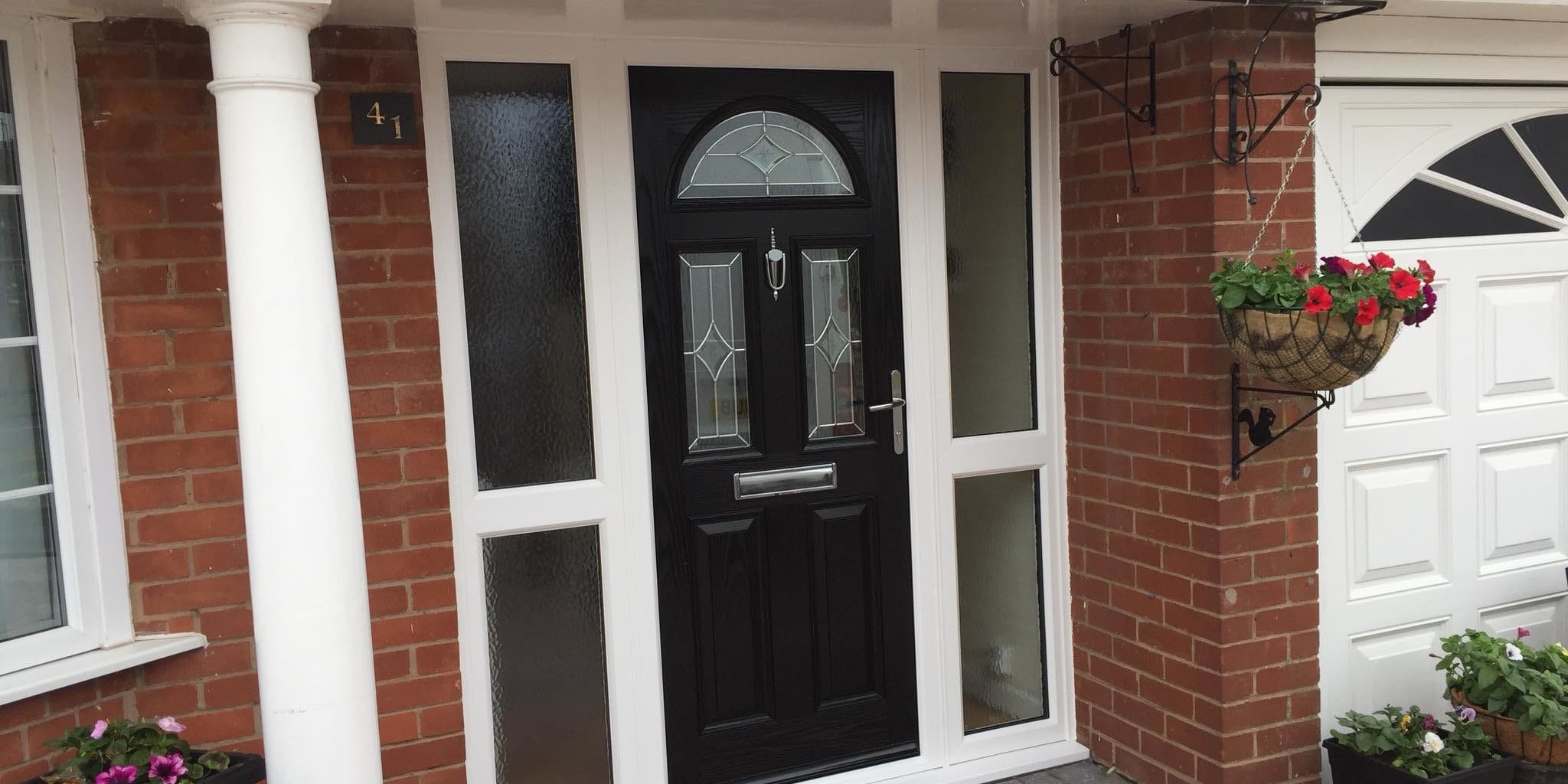First impressions are everything, and this is no different when it comes to your home. Your front door is the first thing people see and you want it to make a positive statement when people arrive. Nowadays, there is a whole world of choice in terms of style and design when it comes to selecting a front door for your home, from stylish stained glass patterns, to elegant wood-effect finish. But one of the key considerations when choosing your front door is the material.
Composite doors offer a stylish alternative to traditional uPVC. They are available in a range of finishes to suit the style of your home and can offer increased security benefits. However, there are some factors which would still make uPVC a better choice. So which is the right material for your front door? Here are some of the advantages and disadvantages of both uPVC and composite doors.
Composite Doors: The Pros
Composite doors offer a number of advantages over their uPVC counterparts. These include:
- A wider range of finishes. Composite doors are available in a broader range of styles than uPVC doors and, because of the materials that make up the composite, realistic effects and finishes. This offers greater versatility in defining your home’s character.
- Energy Efficiency. Because composite doors are made from a number of materials glued together under high pressure, they are thicker than uPVC doors, which makes them slightly more energy efficient.
- Increased Security. Both uPVC and composite doors offer high-level security for your home, the robust construction of composite doors does make them slightly superior in this area.
Composite Doors: The Cons.
As with anything, there are ups and downs for each material type. The cons of opting for a composite door are:
- Slightly higher cost. Composite doors will stretch your budget further than uPVC. Though their durability makes them great value for money, they are higher in cost and this should be considered.
uPVC: The Pros
uPVC and composite doors offer a number of the same benefits. However, there are a couple of reasons you might decide to opt for uPVC over composite.
- Cost. Although composite doors do represent great value for money, the outlay for a uPVC door is still lower, meaning it will put less of a strain on your budget at the outset.
- Low Maintenance. Any stains which appear can be simply wiped clean. However, it is worth noting that this should be done regularly as prolonged neglect or using the wrong chemicals may cause the frame to discolour over time.
uPVC: The Cons
Of course, paying less for your new front door does have its downside. The cons of choosing uPVC are:
- Fewer styles available. Although uPVC doors can come in wood effect finishes and with a range of glass styles, there are far fewer finishes available than there are with composite doors.
Ultimately, the choice of material comes down to the overall purpose of the door. If you’re looking for something to brighten up the front of your home, then a composite door will offer the versatility and variety to give your home the look and finish you’re looking for. However, if budget is a consideration, or if the front door being replaced is within a porch behind another front door, you may be better to consider uPVC. To obtain a free quote from Progress windows, contact us to speak to one of our advisers.

